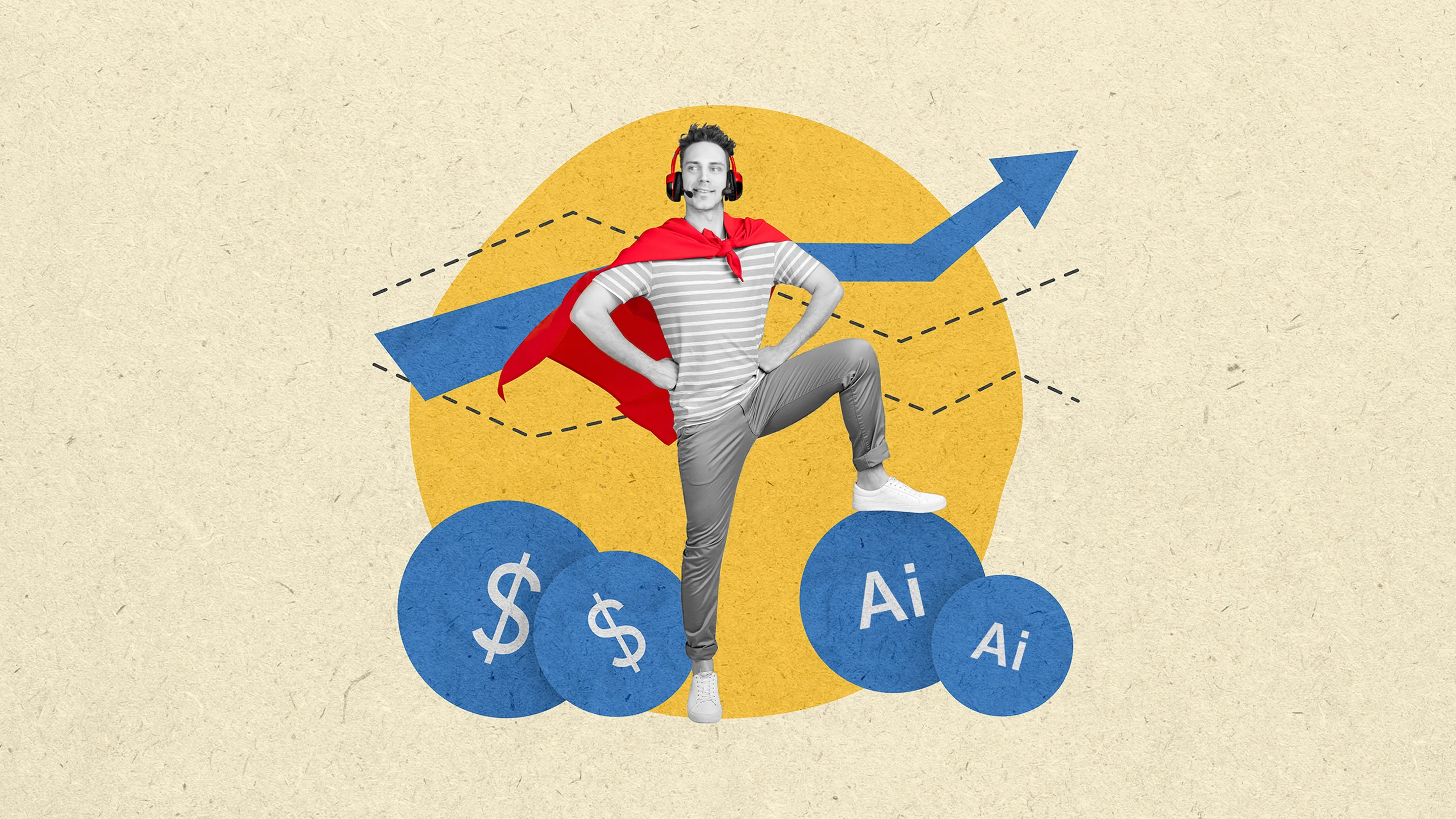The next-gen customer support agent
Your top agents shouldn’t just be AI-conversant—they need high EQ and important soft skills
Customer service leaders face a dual challenge when it comes to generating business value from AI: Not only do they need to deploy the right chatbots, generative AI tools, and other solutions to their teams and customers, but they still very much need human agents who are AI-conversant and skilled enough to swiftly handle the more complex issues that the machines can’t.
That means recruiting new agents—and retraining existing ones—with significantly different skill sets and qualifications than the service reps of years gone by.
“Today’s customer service agents can be almost superhuman with the ability to answer the most complex questions easily with AI,” says Priya Subramani, VP of customer experience products at Freshworks. “Tools like copilots will help get them answers literally at their fingertips, freeing agents to focus on issues that require human empathy, high-value customers, and interactions that can grow the business through their consultative expertise.”
Those skills are also opening up new career paths. Here’s a look at what hiring managers look for in agents who can work side-by-side with AI copilots and other tools to deliver best-in-class customer experience.
Today’s customer service agents can be almost superhuman with the ability to answer the most complex questions easily with AI.
Priya Subramani
VP of customer experience products, Freshworks
Work experience
Service agents still come from all walks of life and experience, from work-at-home parents to individuals simply looking for a career change. One desired qualification—even over previous call-center experience—is prior work in retail customer service, where agents get lots of direct contact.
“Some clients come to us and say they want someone who's been a minimum of one year in the call center,” shares Jim Iyoob, chief customer officer at Etech, a global contact-center solutions provider. “We’ve found that people who worked in retail outperformed people who had call-center experience.”
AI skills
Traditional agents were expected to commit to memory all of the products their company offered, memorize scripts, and search for records. Today, with rapid AI deployments in customer support emerging in many industries, companies like Etech look for AI skills in three areas:
Basic AI know-how—competence with the technology and how it’s used within the company
Operational skills—writing clear and concise ChatGPT prompts and managing copilot tasks while staying engaged with customers
Socializing AI—sharing knowledge with peers and managers
Soft skills
Agents from an earlier era were scored on bottom-line metrics like call volume and resolution time. Today, successful agents need more emotional intelligence to deliver great service that drives results. At Etech, Iyoob prioritizes several important soft skills:
Emotional intelligence—handling complex situations while remaining empathetic to customer needs
Adaptability—being open to new tools and process to keep up with the pace of AI innovation
Problem-solving and critical thinking—reasoning toward solutions when AI can’t solve the problem
Collaboration—a knack for working with others remotely or on-site
Shep Hyken, a leading customer service expert and bestselling author, considers curiosity an equally valuable attribute on great service teams: “Agents willing to embrace the technology and embrace learning to understand AI will find themselves in a valuable place.”
Certifications
Certifications have long been a means of helping service reps advance by developing new skills. Top customer service organizations still offer basic certifications for new agents; more seasoned workers can earn management certifications.
Today, AI-specific certifications are highly valuable and available via online courses, such as AI for Everyone, Machine Learning Specialization, and Generative AI: Prompt Engineering Basics.
“Call center certifications are outdated and old,” says Iyoob. “The new certifications geared towards AI are valuable because I'm going to get five to seven years out of a person who takes them.”
Upward mobility
AI is opening up new avenues for high-performing agents who demonstrate proficiency with AI and an appetite for continuous learning. The average salary for a customer service agent today is about $39,000, but some agents now have the potential to move into management roles with salaries above $100,000.
